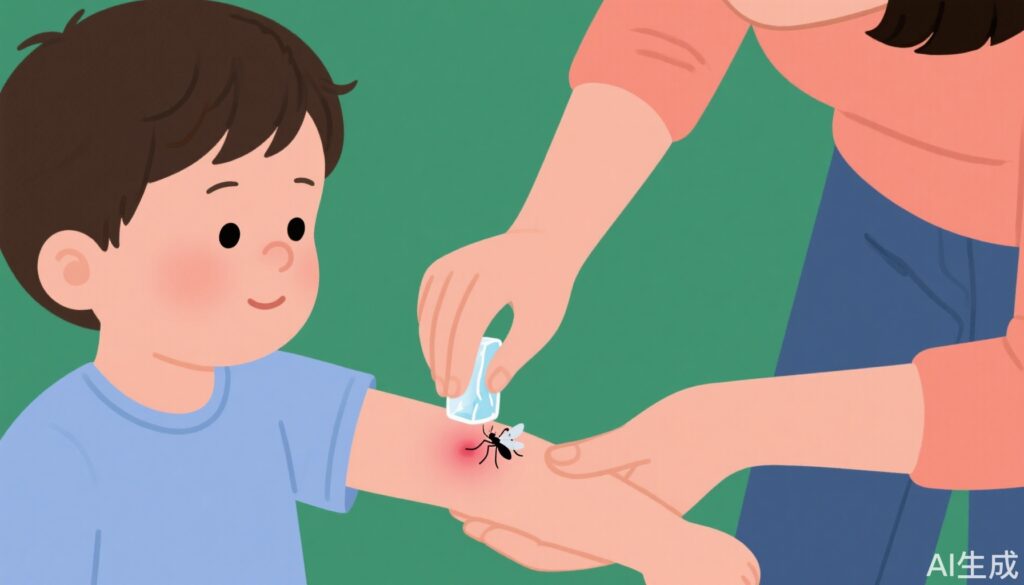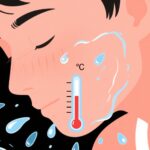Introduction
Mosquito bites are an inevitable part of summer, especially for children who spend more time outdoors. While these bites can be an annoyance for anyone, they often lead to allergic reactions in children that result in red, itchy, and swollen skin. Understanding the reasons behind these reactions and knowing how to manage them can help parents alleviate their children’s discomfort and prevent complications.
Why Are Children More Prone to Allergic Reactions from Mosquito Bites?
Children are particularly susceptible to allergic reactions from mosquito bites for several reasons:
– **Immature Immune System**: A child’s immune system is still developing, which can make them more sensitive to the proteins in mosquito saliva that cause allergic reactions.
– **Thinner Skin**: The delicate nature of children’s skin allows mosquito mouthparts to penetrate more easily, facilitating the spread of allergens and leading to larger areas of swelling.
– **Increased Risk of Infection**: Children often have less control over the urge to scratch, which can break the skin and increase the risk of bacterial infections such as impetigo.
Common Symptoms of Mosquito Bite Allergies in Children
Allergic reactions to mosquito bites in children can vary from mild to severe. Parents should be aware of the following symptoms:
– **Mild Local Reaction**: Within 1-2 hours of being bitten, children may develop small red bumps (papules) or flat welts, with a tiny bite mark at the center. These symptoms typically resolve within 1-3 days but may leave a faint red mark.
– **Moderate Local Reaction**: The bite area may become more swollen, potentially forming a firm lump or blister. This reaction can be particularly itchy and may affect the child’s mood and sleep. Symptoms may last for 3-7 days and leave temporary pigmentation.
– **Severe Local Reaction**: Bites on sensitive areas such as the eyelids, lips, or earlobes can cause significant swelling but usually resolve without lasting harm.
– **Rare Systemic Reaction**: Though uncommon, some children may experience widespread hives, limb swelling, sneezing, coughing, or even difficulty breathing, which requires immediate medical attention.
Emergency Steps for Treating Mosquito Bite Allergies in Children
Parents can take several steps to manage allergic reactions to mosquito bites effectively:
– **Cleanse and Cool**: Wash the bite area with soap and water to remove any residual saliva and reduce the allergic response. Follow this with a cold compress using an ice pack wrapped in a towel for 5-10 minutes to reduce swelling and itchiness.
– **Medications**: Consult a pediatrician before using medications. Recommended topical treatments include calamine lotion, 1% hydrocortisone cream, and antihistamine gels like diphenhydramine (for children over 2 years). Oral antihistamines such as loratadine syrup or cetirizine drops may be appropriate for children over 2 years.
– **Prevent Infection**: Trim the child’s nails to prevent scratching. If the skin is broken, apply mupirocin ointment to prevent bacterial infection. Consider lightweight long-sleeve pajamas or scratch mitts during sleep.
When to Seek Medical Care
Immediate medical attention is necessary if:
– The child has facial swelling affecting the eyes or lips.
– They exhibit systemic symptoms like widespread rash, breathing difficulties, or signs of anaphylactic shock.
– The bite area becomes infected with pus or the child develops a fever.
Misconceptions About Mosquito Bite Treatments
Parents should avoid common mistakes that can exacerbate symptoms:
– **Alcohol or Iodine Application**: These substances can irritate the skin, especially if there are open wounds.
– **Use of Camphor-Based Products**: Items like menthol oil can be too harsh for young skin and may be harmful if ingested.
– **Popping Blisters**: Blisters protect the skin; popping them can lead to infections.
Preventing Mosquito Bites
Taking proactive measures can significantly reduce the frequency of bites:
– **Physical Barriers**: Dress children in light-colored long sleeves and pants. Use mosquito nets for cribs and strollers and avoid times when mosquitoes are most active, such as dawn and dusk.
– **Safe Use of Repellents**:
– DEET: Suitable for children over two months, with recommended concentrations of 10%-30%.
– Picaridin: A milder alternative for sensitive skin.
– Lemon Eucalyptus Oil: Natural but should be used cautiously in children over three years.
– **Home Measures**: Install window screens and regularly clear standing water from pots and drains. Use electric mosquito repellents designed for children, ensuring proper ventilation.
Special Considerations for Parents
Parents should be mindful of specific conditions:
– **Newborns (<2 months)**: Avoid chemical repellents; rely on physical barriers like nets and clothing.
– **Children with Eczema/Allergies**: Mosquito bites may worsen skin conditions, so consult with a healthcare provider for preventive medication.
– **Recurrent Blistering**: This may indicate papular urticaria, necessitating a dermatology consultation.
Conclusion
Early intervention and prevention are critical in managing mosquito bite allergies in children. Parents can ease mild symptoms with cleansing, cold compresses, and safe medication use, but should seek medical advice for severe reactions. Proper preventative measures can minimize exposure and allow children to enjoy a mosquito-free summer.
References
– Centers for Disease Control and Prevention. “Mosquito Bite Prevention (United States).” CDC, 2021.
– American Academy of Pediatrics. “Managing Allergic Reactions to Insect Stings and Bites.” AAP, 2021.
– PubMed. “Mosquito Bites: Allergic Reactions in Children.” National Library of Medicine, 2020.


